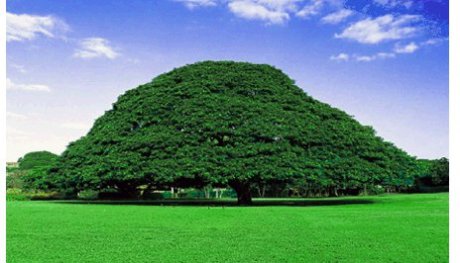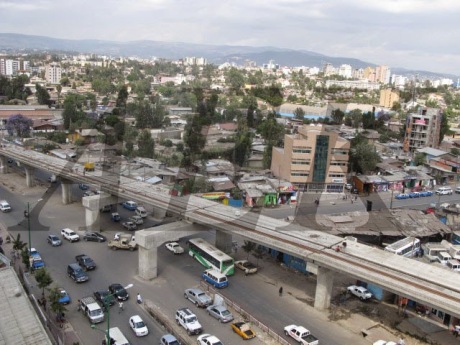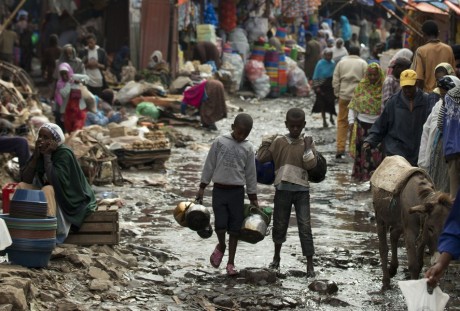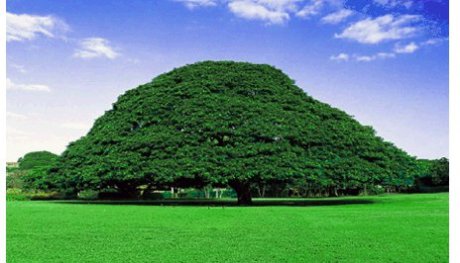Government media in Ethiopia vs Scholars view of development: A stand-off paradox
Ameyu Etana*
It has been more than a decade since DEVELOPMENT became a buzzword in Ethiopian Radio and Television Agency
As ERTA is a pro-government media and are sponsored by the state, there is a strong probability to be under the guise of social responsibility theory when addressing issues. As it is common of using development journalism as an instrument in developmental states, likewise, the Ethiopian government is using media as a big power to making the public participating in development. Television Agency (ERTA) and other media that are pro-government but run under the auspices of private media. Regrettably, probably, it is the most abused and corrupted word beyond what one could imagine. A name developmentalist came to develop a negative connotation for a journalist in Ethiopia. Quite number of academic researches has been done on the single nationwide media in Ethiopia, however; very little of them adduced and proved the professional nature of political power house of Ethiopian government, ERTA.
Ethiopia, a nation came to be a laboratory of political economy is a dish for choose and pick philosophy of politics. The political economy of Ethiopia is democratic developmental state. By their nature such states are repressive. And there has never been a country both democratic and developmental at a time except Ethiopia. Nevertheless, it seems, what we are seeing is not in accord with the political economy.
The Ethiopian government adopted United Nations General Assembly Resolution 41/128:1986. Alike, the right to development is one of the bill rights that had been included in the federal constitution of Ethiopia. Article 43 of FDRE constitution could depict this. To the contrary, mostly, what has been written and what has been practiced seems contradict each other.
As we know, what Ethiopian Television, Ethiopian Radio, Ethiopian Herald, Addis Zemen, Bariisaa, Ethiopian News Agency, Walta Information Center and other government driven media and/or news agency in Ethiopia and other whose names called under the guise of private but pro-government media view development as econometric (statistics use to view development e.g. economic development) view of development. As a result, any report that put Ethiopian development in number presumed to have high political benefit and get the major attention as it makes a headline. Infrastructure, number of investors, their capital, the KM of a road built, export and import quantities, number of graduates, number of higher institutions, and others are mostly at the desk of those media institution. Hence, what is seen is not the human side but the growth side as it uses to be.
Since the philosophy of state media in Ethiopia is development journalism, though wrongly interpreted, the issue of development vastly and exhaustively reported in a form of news, program, documentary, and other types of reports. However, most news are just a report as they lack interpretation while the journalist acts as a conduit than the one who produce it. I.e. Ethiopia is amongst the fastest growing economy in the world though third of its population lives in absolute poverty. In addition, there is been a big unequal economic distribution in the country and unemployment is getting higher albeit it is repeatedly told it is non-oil economy. If so, what is the benefit of jobless growth? Moreover, indigenous knowledge is ignored at the same time modern technology is also getting little attention by farmers, which is discrepancy right now in the country. As the journalism model, those media were supposed to critically examine and meticulously analyze issue that matters most to the people than merely reporting it.
The people of the country have long experienced the use of development for propaganda. Owing to this, it is difficult to identify the real concept of development in the mind of citizens. This resembles the sedative nature of the media in the country. Recently, journalists of Oromia Radio and Television Journalists (ORTO) did a deliberation on the controversial master plan of Addis Ababa, however, regrettably, they got an axe for the mere fact they did speak their mind. Hence, we can say that development is like politics in Ethiopia as it is untouched area to be opened for deliberation.
After all what is development? What scholars say about development?
Several scholars held a debate for decades on what development is until they came to, probably; seems agree as it is all about human development. Lamentably, as Rita Abrahamsen puts it in her book called Disciplining Democracy: Development Discourse and Good Governance in Africa the issue of development became politicized, which is unfortunate as the world came to see help poor countries based on their political ideology they might have than favoring solely for being human.
The leading professor Amartya Sen in his book Development as Freedom which was published in 1999 argues development should be seen as a process of expanding the real freedoms that people enjoy. He contrasts the view of development with the widely prevalent concentration on the expansion of real income and on economic growth as the characteristics of successful development. Poverty, the flip side of development, means capability deprivation that inhibits citizen’s freedom to live, the reason they value most. As a result, development means an expansion of freedom.
For Amartya Sen Poverty is lack of choice, socioeconomic and political deprivation while development is a freedom or emancipation from poverty, empowerment of the people. Therefore, we simply understand us development is all about a people than merely numbers.
Similarly Michael Todaro in his book Economic Development argues that development must be seen as multidimensional process involving major changes in social structure, popular attitudes, and national institutions as well as the acceleration of economic growth, the reduction of inequality and the eradication of absolute poverty. And several scholars including Thomas Alan and others believed development is about empowering and emancipating people from the agony that make them suffer most than ignoring their existence.
Having looked at this, inopportunely we see the paradox in Ethiopia. In the name of development people has been ignored freedom; few are benefiting but millions are joining poverty if not struggling to survive. Rather than sensitizing them the media is pursuing sedative under the auspices of development as submissive people at large are being produced in the country seeing that the issue of development became not open for discussion and untouchable. Regrettably, in the name of investment and several projects, millions are being displaced from the land they presumes their only property they got from their forefathers but, are treated like ignorant who could serve nothing for the development. I.e. it is the residents of Addis Ababa that were deliberating over the contentious master plan for days on the lands of farmerssurrounding Addis Ababa. How could this be the right way? By no means it is democratic or developmental? It is highly nonsense and absurd but not surprise as it uses to be in the country.
If development is for the people why do ignore them or why to treating them as against development? By its nature development is not merely road or building, it is about mind development. If the big asset for human, which is mind is not well set, how to manage the entire infrastructure? It seems everything is messed up in Ethiopia. Due to this, the wider public is feeling ignorant to the plans and strategies the government drafts each time.
Consequently, here in Ethiopia, under the guise of development thousands get prisoned, displaced, ignored, dehumanized, unnerved, denied capability, bottled in poverty, whereas, few get rich, empowered, emancipate in such a way to fasten andwiden the gap of living standards of citizens, which is shockingly inhuman. Inconveniently, for the development gained it is not the people but a party or officials get recognition as personal cult is common so far.
The other vital issue we should pay attention to is making the people the participant when the plan is drafted which mean making the people the source of development. If doing so, those who decide by themselves become responsible for the accomplishment, which is a big benefit for the ruled and for the ruler. However, this was not happening rather the people are assumed as ignorant mass that could have no role prior to drafting of the plan but after. http://mohiboni.blogspot.co.uk/2014/08/government-herd-media-in-ethiopia-and.html
*Ameyu Etana is a journalist in Ethiopia and by now he is a graduate student at Addis Ababa University. Can be reached at: ameyuetana@gmail.com You can follow and comment on his articles on mohiboni.blogspot.com and mohiboni.wordpress.com. All are encouraged to challenge. Any idea is welcomed as far as it has adduced.






